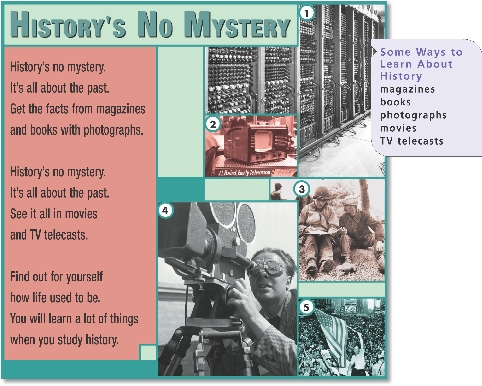Language Development
What Is History?
Language: Have a Discussion
Listen and sing. ![]()

History’s No Mystery
History’s no mystery.
It’s all about the past.
Get the facts from magazines
and books with photographs.
History’s no mystery.
It’s all about the past.
See it all in movies
and TV telecasts.
Find out for yourself
how life used to be.
You will learn a lot of things
when you study history.
1. 1946, Pennsylvania The first electronic computer
2. 1949, England A portable television
3. 1944, France A man talks with an American soldier.
4. 1940, Switzerland A newsreel cameraman
5. 1945, New York The celebration of the end of World War II
Express Yourself
HAVE A DISCUSSION
Meet with a group. Use the questions below to start a discussion.
1. I like to read books to learn about the past.
Example
1. How do you like to learn about the past?
2. Why is it important to learn about history?
3. Have you seen a movie about the past? Tell about it. What did you learn from the movie?
4. Say one of the sentences above. Tell one important thing you learned in the discussion.
4. You can get movies about the past at the library.
Example